#Azure IoT application development
Explore tagged Tumblr posts
Text
Azure IoT Central: Revolutionizing IoT Solutions for Manufacturing Industries
Azure IoT Central is a cutting-edge platform built on the foundation of Azure IoT, offering a model-based approach to empower businesses in constructing enterprise-grade IoT solutions. Designed with the aim of eliminating the need for cloud-solution development expertise, Azure IoT Central provides a comprehensive software as a service (SaaS) solution. With its built-in templates for various industries, device provisioning services, and feature-rich dashboards, it enables seamless monitoring of device health, connectivity, management, and communication.
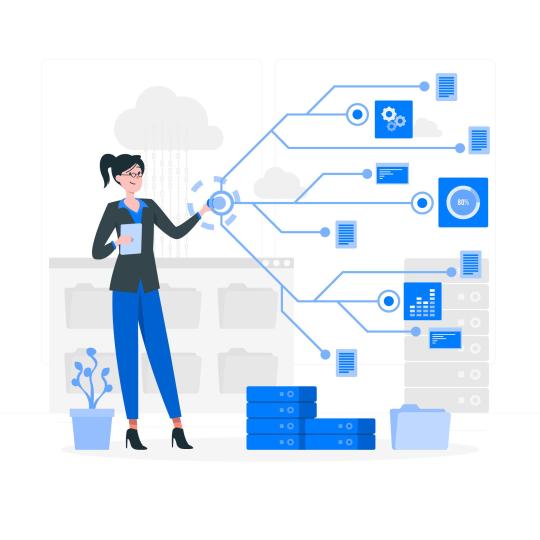
Streamlining Manufacturing Operations with Azure IoT Central
In the realm of manufacturing, Azure IoT Central proves to be a game-changer by facilitating the seamless connection, management, and monitoring of industrial assets. By leveraging Azure IoT Central, manufacturing industries can effortlessly integrate data into their applications, enabling them to make data-driven decisions and unlock operational efficiencies. With its user-friendly interface and powerful capabilities, Azure IoT Central empowers manufacturers to gain valuable insights from their assets and drive productivity.
Key Features and Benefits
Template-based Solution: Azure IoT Central offers pre-built templates tailored for various industries, enabling businesses to quickly deploy IoT solutions without extensive customization. These templates encompass a wide range of applications, including asset tracking, predictive maintenance, and remote monitoring, among others.
Device Provisioning Services: Simplifying the process of onboarding devices, Azure IoT Central provides robust device provisioning services. This feature streamlines the connection and configuration of devices, ensuring seamless integration into the IoT ecosystem.
Comprehensive Dashboard: Azure IoT Central's intuitive dashboard empowers businesses to monitor and manage their IoT devices effectively. From tracking device health and connectivity to managing firmware updates and troubleshooting, the dashboard provides real-time insights and facilitates proactive maintenance.
Secure and Scalable: Built on the trusted Azure IoT platform, Azure IoT Central ensures top-notch security for sensitive data and device communications. Moreover, it offers scalability to accommodate growing business needs, allowing seamless expansion without compromising performance.
Integration Capabilities: Azure IoT Central seamlessly integrates with other Azure services, such as Azure Machine Learning and Azure Stream Analytics, enabling advanced analytics, machine learning capabilities, and seamless data integration across the Azure ecosystem.
Unlocking the Potential of IoT in Manufacturing
By harnessing the power of Azure IoT Central, manufacturing industries can revolutionize their operations and tap into the full potential of IoT. Here's how Azure IoT Central can benefit manufacturing businesses:
Enhanced Operational Efficiency: Real-time monitoring and analysis of industrial assets enable proactive maintenance, minimizing downtime and optimizing operations. Predictive maintenance and condition monitoring enable businesses to identify and address potential issues before they escalate.
Improved Product Quality: IoT-enabled sensors and devices collect data throughout the production process, ensuring quality control and adherence to standards. Businesses can gain valuable insights into product performance, identify defects, and take corrective measures promptly.
Cost Optimization: By leveraging Azure IoT Central, manufacturers can optimize resource allocation, reduce energy consumption, and streamline maintenance processes. Data-driven insights enable businesses to make informed decisions, resulting in cost savings and improved profitability.
Enhanced Safety and Compliance: IoT devices and sensors can monitor environmental conditions, ensuring a safe working environment for employees. Moreover, businesses can leverage IoT data to comply with industry regulations and maintain quality standards.
Get Started with Azure IoT Central Today
Take the first step toward transforming your manufacturing operations with Azure IoT Central. Leverage its advanced features, comprehensive templates, and user-friendly interface to build robust IoT solutions that propel your business forward. Embrace the power of data, streamline your operations, and unlock unparalleled insights with Azure IoT Central.
#Azure IoT Central#IoT solutions#Azure IoT solutions#Azure IoT cloud services#Azure IoT application development#Azure IoT cloud integration#Azure IoT analytics
2 notes
·
View notes
Text
WordPress Security Services Tailored to Your Business Needs
Atcuality understands that every WordPress website has unique security needs. Our specialized WordPress security services provide customized solutions to safeguard your website from malicious attacks, unauthorized access, and technical vulnerabilities. Whether you own a blog, corporate website, or online store, our comprehensive approach includes malware scanning, vulnerability patching, firewall implementation, and site backups. Atcuality’s team of security professionals works tirelessly to monitor and eliminate threats before they can impact your business. With advanced tools and strategies like SSL encryption and uptime monitoring, we ensure your website operates securely while maintaining peak performance. Cyber threats evolve daily, but with Atcuality, you can stay one step ahead. Don’t let your website become a target—secure your site and maintain customer trust with our proven WordPress security solutions.
#seo marketing#seo services#artificial intelligence#digital marketing#iot applications#seo company#seo agency#amazon web services#azure cloud services#ai powered application#ai applications#ai app development#virtual reality#vr development#vr games#wordpress#web developers#web development#web design#web developing company#website developer near me#wordpress development#web hosting#website#augmented and virtual reality market#augmented human c4 621#augmented intelligence#augmented reality#iot#iotsolutions
4 notes
·
View notes
Text
Future Of Iot In The Automotive Industry
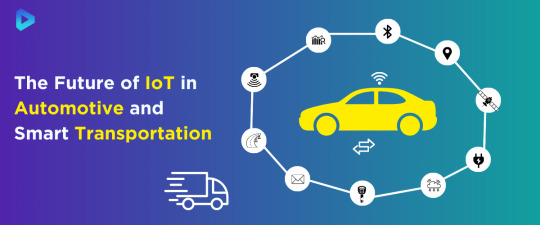
The automotive industry is undergoing a significant transformation with the integration of IoT technologies. Connected cars and smart transportation systems are becoming the norm, enhancing safety, efficiency, and convenience. In this blog, we explore how various IoT technologies and platforms are shaping the future of the automotive sector.
Role of IoT Devices in Connected Cars
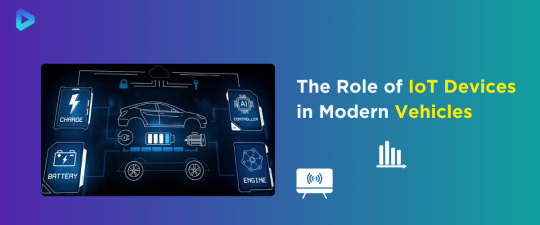
Importance of IoT Devices in Modern Automobiles
IoT devices are pivotal in modern automobiles, significantly enhancing their functionality and safety features. These devices facilitate seamless communication between vehicles and infrastructure, leading to improved traffic management and reduced accident rates. Sensors gather real-time data on how vehicles perform and how drivers behave. This information is crucial for predictive maintenance and enhancing the overall driving experience. IoT devices monitor crucial parameters like tire pressure, engine health, and fuel levels. These sensors issue prompt alerts for required maintenance.
Enhancing Vehicle Functionality with IoT Integration
Integrating IoT into vehicles drastically enhances their functionality, offering a range of advanced features. Smart cars can now include autonomous driving capabilities, real-time navigation, and personalized infotainment systems. IoT integration allows vehicles to interact with smart city infrastructure. This optimizes routes based on current traffic conditions to reduce travel time. IoT-powered navigation systems offer real-time traffic updates and recommend alternative routes to bypass congestion. IoT facilitates advanced driver-assistance systems (ADAS), including features such as adaptive cruise control, lane-keeping assistance, and automated parking.
Key Features of IoT-Enabled Automotive Systems
IoT-powered automotive systems incorporate various features that significantly boost safety and convenience for both drivers and manufacturers. These features include:
Real-Time Monitoring: Continuous monitoring of vehicle performance and health, providing timely alerts for maintenance and repairs.
Remote Diagnostics: Allowing technicians to diagnose and fix issues remotely, reducing downtime and improving efficiency.
Enhanced Connectivity: Enabling vehicles to communicate with each other and infrastructure, improving traffic management, and reducing accidents.
Advanced Security: Implementing robust security measures to protect vehicle data from unauthorized access and ensure data integrity.
Personalized Experience: Customizing infotainment systems based on driver preferences, providing a more enjoyable driving experience.
Impact of IoT Cloud on Smart Transportation
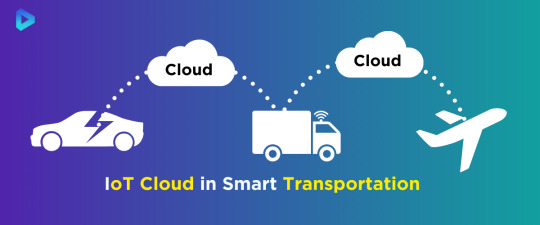
How IoT Cloud Enhances Vehicle Connectivity
The IoT Cloud significantly enhances vehicle connectivity by enabling seamless communication between vehicles and other connected devices. Vehicles can share real-time information with each other and with infrastructure systems through IoT Cloud platforms. This improves traffic flow and safety. Connected cars can communicate traffic conditions, road hazards, and optimal routes to each other. This information assists drivers in making informed choices and steering clear of traffic jams. IoT Cloud services allow for over-the-air updates. This ensures that vehicle software remains up-to-date with the latest features and security patches.
Real-Time Data Processing with IoT Cloud
Real-time data processing is a critical capability of IoT Cloud solutions. It enables vehicles to react promptly to changing conditions. The IoT Cloud processes vast amounts of data generated by sensors and devices in connected cars instantly. This immediate analysis of data allows for timely actions, such as adjusting vehicle speed to avoid collisions, optimizing fuel usage, and enhancing navigation accuracy. When a connected vehicle detects a sudden slowdown in traffic, the IoT Cloud processes this data. It then sends alerts to nearby vehicles, helping to prevent accidents. Real-time processing supports advanced driver-assistance systems (ADAS). It provides the necessary data for features like lane-keeping and adaptive cruise control.
Cost Benefits of Implementing IoT Cloud Solutions
Implementing IoT Cloud solutions offers significant cost benefits for the automotive industry. A major benefit is the decrease in infrastructure expenses. IoT Cloud services eliminate the need for extensive on-premises hardware and maintenance. Additionally, IoT Cloud solutions enable predictive maintenance, which helps identify potential vehicle issues before they become costly problems. By addressing maintenance needs proactively, companies can reduce downtime and extend the lifespan of their vehicles. IoT Cloud services allow businesses to pay only for the resources they use. This approach makes it a cost-effective solution for both small startups and large organizations.
Industrial IoT Advancements in the Automotive Sector
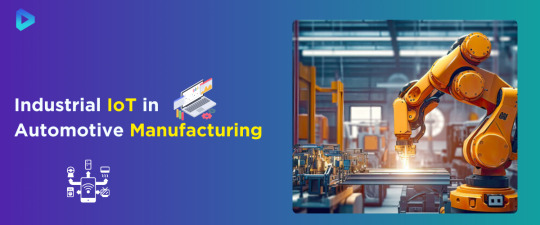
Industrial IoT Applications in Vehicle Manufacturing
Industrial IoT (IIoT) has changed vehicle manufacturing by integrating advanced sensors, data analytics, and automation technologies. These applications enable real-time monitoring and control of manufacturing processes, ensuring higher precision and quality. For example, IoT sensors can monitor equipment performance and detect anomalies, allowing for immediate adjustments to maintain optimal production conditions. Additionally, IIoT enables better inventory management through automated tracking of parts and materials, reducing waste and ensuring that production lines run smoothly. The integration of IIoT in vehicle manufacturing also facilitates seamless communication between machines and systems, improving coordination and efficiency across the production floor.
Improving Production Efficiency with Industrial IoT
Implementing Industrial IoT solutions significantly improves production efficiency in the automotive sector. By providing real-time data on production processes, IIoT helps identify bottlenecks and areas for improvement. For instance, IoT-enabled machinery can automatically adjust settings to optimize performance and minimize energy consumption. This leads to reduced downtime and increased throughput. IIoT monitors the usage of raw materials and energy, ensuring efficient resource management. The insights gained from IIoT data analytics enable manufacturers to streamline operations, reduce costs, and enhance overall productivity.
Predictive Maintenance in the Automotive Industry
Predictive maintenance is a key benefit of Industrial IoT in the automotive industry. IoT sensors monitor the condition of machinery and equipment, allowing manufacturers to predict maintenance needs, which helps prevent unexpected breakdowns and costly repairs. Vibration sensors on motors can detect early signs of wear and tear. They prompt timely maintenance before a failure occurs. This proactive approach extends the lifespan of equipment and reduces downtime, leading to significant cost savings. Additionally, predictive maintenance helps ensure consistent product quality by maintaining optimal operating conditions for machinery.
Advantages of Using Azure IoT Hub for Vehicles
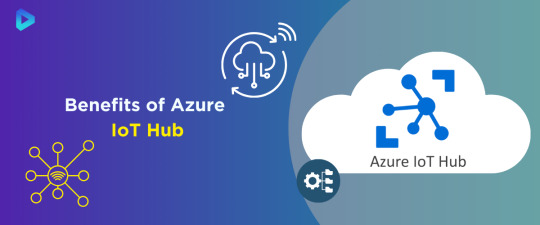
Integrating Azure IoT Hub with Automotive Systems
Integrating Azure IoT Hub with automotive systems offers numerous benefits, enabling seamless communication and data exchange between connected vehicles and cloud services. This integration facilitates real-time monitoring and control of vehicle functions, enhancing both performance and safety. Manufacturers can use Azure IoT Hub to gather and analyze data from sensors embedded in vehicles. The system provides insights into engine health, fuel efficiency, and driver behavior. The integration supports over-the-air (OTA) updates. Vehicle software remains current with the latest features and security patches.
Features of Azure IoT Hub for Smart Cars
Azure IoT Hub offers a range of features that are particularly beneficial for smart cars. These features include:
Device Management: Enables remote monitoring and control of vehicle systems, allowing manufacturers to diagnose issues and deploy updates without physical access.
Data Ingestion and Analysis: Collects and processes large volumes of data from connected vehicles, providing actionable insights for improving vehicle performance and safety.
Security: Implements robust security protocols to protect vehicle data from unauthorized access and cyber threats.
Compatibility: Supports integration with various IoT devices and platforms, ensuring seamless communication across different systems.
Scalability: Azure IoT Hub can handle a vast number of connected devices. The capability is suitable for large-scale deployments in the automotive industry.
Scalability Benefits of Azure IoT Hub
Azure IoT Hub's ability to grow is a significant advantage. It is crucial for automotive manufacturers and service providers. Azure IoT Hub can efficiently manage and process data from millions of connected vehicles. This ensures consistent performance regardless of the scale of deployment. This ability to grow allows automotive companies to expand their IoT solutions as their fleet grows. It ensures there is no compromise on performance or reliability. Additionally, Azure IoT Hub's scalable architecture supports diverse use cases, from small pilot projects to large-scale commercial deployments.
Using Thingspeak for Automotive Data Analysis

Thingspeak Applications in Vehicle Diagnostics
Thingspeak is a powerful tool for vehicle diagnostics, offering real-time data analysis and insights. By leveraging Thingspeak, automotive companies can monitor engine performance, fuel efficiency, and other critical parameters. This data helps in identifying potential issues before they become serious problems, enabling proactive maintenance. For instance, Thingspeak can track temperature variations in engine components, alerting technicians to possible overheating issues. This application of Thingspeak in vehicle diagnostics not only improves vehicle reliability but also enhances the safety and satisfaction of the driver.
Real-Time Monitoring with Thingspeak for Cars
Real-time monitoring is one of the standout features of Thingspeak for cars. Thingspeak collects and processes data from various sensors in real-time. This provides instant insights into vehicle performance and health. This capability allows for immediate response to any problems or malfunctions, reducing the risk of breakdowns. If a vehicle's tire pressure drops below a safe level, Thingspeak can instantly alert the driver. It can also suggest nearby service stations.
Data Visualization Capabilities of Thingspeak
The data visualization capabilities of Thingspeak are essential for making sense of complex automotive data. With its powerful visualization tools, Thingspeak can transform raw data into easily understandable graphs and charts. This helps automotive engineers and technicians quickly identify trends and patterns, helping better decision-making. For instance, Thingspeak can display a heat map of engine performance, highlighting areas that require attention. Teams can share these displays across departments, improving collaboration and efficiency in addressing vehicle issues.
Verizon Thingspace and Its Automotive Applications
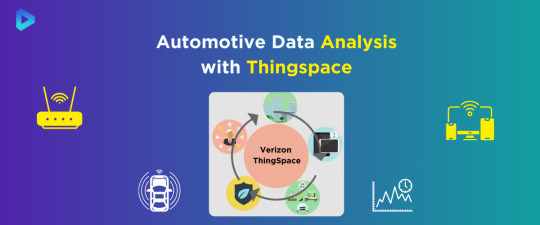
Connecting Vehicles with Verizon Thingspace
Verizon Thingspace provides robust solutions for connecting vehicles, helping seamless communication between cars, infrastructure, and cloud services. By leveraging Verizon's reliable network, automotive companies can ensure that their vehicles remain connected, regardless of location. Connectivity allows for real-time data exchange. It enables features such as remote diagnostics, over-the-air updates, and enhanced navigation services. A connected car can receive software updates and new features without needing a visit to the dealership. The vehicle always has the latest capabilities.
Features of Verizon Thingspace for Automotive Industry
Verizon Thingspace offers a variety of features tailored specifically for the automotive industry. Key features include:
Device Management: Simplifies the process of managing multiple connected devices, ensuring they are functioning correctly and securely.
Data Analytics: Provides powerful tools for analyzing vehicle data, helping manufacturers improve performance and efficiency.
Security: Advanced encryption and verification protocols protect data transmitted between vehicles and the cloud.
Scalability: Supports the growth of connected vehicle fleets, making it easy to add new devices and scale operations.
Enhancing Vehicle Connectivity with Verizon Thingspace
Verizon Thingspace significantly enhances vehicle connectivity by providing a robust and scalable platform for IoT applications. The platform enables vehicles to communicate seamlessly with each other and with external systems. It helps with traffic management, emergency response, and fleet management. Enhanced connectivity also allows for better integration with smart city infrastructure, improving overall transportation efficiency. Connected cars can share real-time traffic data with city planners. This sharing helps to reduce congestion and improve road safety.
Let's Discuss Your Idea
#IoT#IoT Devices#IoT Cloud#Industrial IoT#Azure IoT Hub#Thingspeak#Verizon Thingspace#Iot Internet#Internet Of All Things#ai#blockchain#iotsolutions#iot applications#iot development services#iot tech
1 note
·
View note
Text
Exploring the Azure Technology Stack: A Solution Architect’s Journey
Kavin
As a solution architect, my career revolves around solving complex problems and designing systems that are scalable, secure, and efficient. The rise of cloud computing has transformed the way we think about technology, and Microsoft Azure has been at the forefront of this evolution. With its diverse and powerful technology stack, Azure offers endless possibilities for businesses and developers alike. My journey with Azure began with Microsoft Azure training online, which not only deepened my understanding of cloud concepts but also helped me unlock the potential of Azure’s ecosystem.
In this blog, I will share my experience working with a specific Azure technology stack that has proven to be transformative in various projects. This stack primarily focuses on serverless computing, container orchestration, DevOps integration, and globally distributed data management. Let’s dive into how these components come together to create robust solutions for modern business challenges.

Understanding the Azure Ecosystem
Azure’s ecosystem is vast, encompassing services that cater to infrastructure, application development, analytics, machine learning, and more. For this blog, I will focus on a specific stack that includes:
Azure Functions for serverless computing.
Azure Kubernetes Service (AKS) for container orchestration.
Azure DevOps for streamlined development and deployment.
Azure Cosmos DB for globally distributed, scalable data storage.
Each of these services has unique strengths, and when used together, they form a powerful foundation for building modern, cloud-native applications.
1. Azure Functions: Embracing Serverless Architecture
Serverless computing has redefined how we build and deploy applications. With Azure Functions, developers can focus on writing code without worrying about managing infrastructure. Azure Functions supports multiple programming languages and offers seamless integration with other Azure services.
Real-World Application
In one of my projects, we needed to process real-time data from IoT devices deployed across multiple locations. Azure Functions was the perfect choice for this task. By integrating Azure Functions with Azure Event Hubs, we were able to create an event-driven architecture that processed millions of events daily. The serverless nature of Azure Functions allowed us to scale dynamically based on workload, ensuring cost-efficiency and high performance.
Key Benefits:
Auto-scaling: Automatically adjusts to handle workload variations.
Cost-effective: Pay only for the resources consumed during function execution.
Integration-ready: Easily connects with services like Logic Apps, Event Grid, and API Management.
2. Azure Kubernetes Service (AKS): The Power of Containers
Containers have become the backbone of modern application development, and Azure Kubernetes Service (AKS) simplifies container orchestration. AKS provides a managed Kubernetes environment, making it easier to deploy, manage, and scale containerized applications.
Real-World Application
In a project for a healthcare client, we built a microservices architecture using AKS. Each service—such as patient records, appointment scheduling, and billing—was containerized and deployed on AKS. This approach provided several advantages:
Isolation: Each service operated independently, improving fault tolerance.
Scalability: AKS scaled specific services based on demand, optimizing resource usage.
Observability: Using Azure Monitor, we gained deep insights into application performance and quickly resolved issues.
The integration of AKS with Azure DevOps further streamlined our CI/CD pipelines, enabling rapid deployment and updates without downtime.
Key Benefits:
Managed Kubernetes: Reduces operational overhead with automated updates and patching.
Multi-region support: Enables global application deployments.
Built-in security: Integrates with Azure Active Directory and offers role-based access control (RBAC).
3. Azure DevOps: Streamlining Development Workflows
Azure DevOps is an all-in-one platform for managing development workflows, from planning to deployment. It includes tools like Azure Repos, Azure Pipelines, and Azure Artifacts, which support collaboration and automation.
Real-World Application
For an e-commerce client, we used Azure DevOps to establish an efficient CI/CD pipeline. The project involved multiple teams working on front-end, back-end, and database components. Azure DevOps provided:
Version control: Using Azure Repos for centralized code management.
Automated pipelines: Azure Pipelines for building, testing, and deploying code.
Artifact management: Storing dependencies in Azure Artifacts for seamless integration.
The result? Deployment cycles that previously took weeks were reduced to just a few hours, enabling faster time-to-market and improved customer satisfaction.
Key Benefits:
End-to-end integration: Unifies tools for seamless development and deployment.
Scalability: Supports projects of all sizes, from startups to enterprises.
Collaboration: Facilitates team communication with built-in dashboards and tracking.

4. Azure Cosmos DB: Global Data at Scale
Azure Cosmos DB is a globally distributed, multi-model database service designed for mission-critical applications. It guarantees low latency, high availability, and scalability, making it ideal for applications requiring real-time data access across multiple regions.
Real-World Application
In a project for a financial services company, we used Azure Cosmos DB to manage transaction data across multiple continents. The database’s multi-region replication ensure data consistency and availability, even during regional outages. Additionally, Cosmos DB’s support for multiple APIs (SQL, MongoDB, Cassandra, etc.) allowed us to integrate seamlessly with existing systems.
Key Benefits:
Global distribution: Data is replicated across regions with minimal latency.
Flexibility: Supports various data models, including key-value, document, and graph.
SLAs: Offers industry-leading SLAs for availability, throughput, and latency.
Building a Cohesive Solution
Combining these Azure services creates a technology stack that is flexible, scalable, and efficient. Here’s how they work together in a hypothetical solution:
Data Ingestion: IoT devices send data to Azure Event Hubs.
Processing: Azure Functions processes the data in real-time.
Storage: Processed data is stored in Azure Cosmos DB for global access.
Application Logic: Containerized microservices run on AKS, providing APIs for accessing and manipulating data.
Deployment: Azure DevOps manages the CI/CD pipeline, ensuring seamless updates to the application.
This architecture demonstrates how Azure’s technology stack can address modern business challenges while maintaining high performance and reliability.
Final Thoughts
My journey with Azure has been both rewarding and transformative. The training I received at ACTE Institute provided me with a strong foundation to explore Azure’s capabilities and apply them effectively in real-world scenarios. For those new to cloud computing, I recommend starting with a solid training program that offers hands-on experience and practical insights.
As the demand for cloud professionals continues to grow, specializing in Azure’s technology stack can open doors to exciting opportunities. If you’re based in Hyderabad or prefer online learning, consider enrolling in Microsoft Azure training in Hyderabad to kickstart your journey.
Azure’s ecosystem is continuously evolving, offering new tools and features to address emerging challenges. By staying committed to learning and experimenting, we can harness the full potential of this powerful platform and drive innovation in every project we undertake.
#cybersecurity#database#marketingstrategy#digitalmarketing#adtech#artificialintelligence#machinelearning#ai
2 notes
·
View notes
Text
Java's Lasting Impact: A Deep Dive into Its Wide Range of Applications
Java programming stands as a towering pillar in the world of software development, known for its versatility, robustness, and extensive range of applications. Since its inception, Java has played a pivotal role in shaping the technology landscape. In this comprehensive guide, we will delve into the multifaceted world of Java programming, examining its wide-ranging applications, discussing its significance, and highlighting how ACTE Technologies can be your guiding light in mastering this dynamic language.

The Versatility of Java Programming:
Java programming is synonymous with adaptability. It's a language that transcends boundaries and finds applications across diverse domains. Here are some of the key areas where Java's versatility shines:
1. Web Development: Java has long been a favorite choice for web developers. Robust and scalable, it powers dynamic web applications, allowing developers to create interactive and feature-rich websites. Java-based web frameworks like Spring and JavaServer Faces (JSF) simplify the development of complex web applications.
2. Mobile App Development: The most widely used mobile operating system in the world, Android, mainly relies on Java for app development. Java's "write once, run anywhere" capability makes it an ideal choice for creating Android applications that run seamlessly on a wide range of devices.
3. Desktop Applications: Java's Swing and JavaFX libraries enable developers to craft cross-platform desktop applications with sophisticated graphical user interfaces (GUIs). This cross-platform compatibility ensures that your applications work on Windows, macOS, and Linux.
4. Enterprise Software: Java's strengths in scalability, security, and performance make it a preferred choice for developing enterprise-level applications. Customer Relationship Management (CRM) systems, Enterprise Resource Planning (ERP) software, and supply chain management solutions often rely on Java to deliver reliability and efficiency.
5. Game Development: Java isn't limited to business applications; it's also a contender in the world of gaming. Game developers use Java, along with libraries like LibGDX, to create both 2D and 3D games. The language's versatility allows game developers to target various platforms.
6. Big Data and Analytics: Java plays a significant role in the big data ecosystem. Popular frameworks like Apache Hadoop and Apache Spark utilize Java for processing and analyzing massive datasets. Its performance capabilities make it a natural fit for data-intensive tasks.
7. Internet of Things (IoT): Java's ability to run on embedded devices positions it well for IoT development. It is used to build applications for smart homes, wearable devices, and industrial automation systems, connecting the physical world to the digital realm.
8. Scientific and Research Applications: In scientific computing and research projects, Java's performance and libraries for data analysis make it a valuable tool. Researchers leverage Java to process and analyze data, simulate complex systems, and conduct experiments.
9. Cloud Computing: Java is a popular choice for building cloud-native applications and microservices. It is compatible with cloud platforms such as AWS, Azure, and Google Cloud, making it integral to cloud computing's growth.

Why Java Programming Matters:
Java programming's enduring significance in the tech industry can be attributed to several compelling reasons:
Platform Independence: Java's "write once, run anywhere" philosophy allows code to be executed on different platforms without modification. This portability enhances its versatility and cost-effectiveness.
Strong Ecosystem: Java boasts a rich ecosystem of libraries, frameworks, and tools that expedite development and provide solutions to a wide range of challenges. Developers can leverage these resources to streamline their projects.
Security: Java places a strong emphasis on security. Features like sandboxing and automatic memory management enhance the language's security profile, making it a reliable choice for building secure applications.
Community Support: Java enjoys the support of a vibrant and dedicated community of developers. This community actively contributes to its growth, ensuring that Java remains relevant, up-to-date, and in line with industry trends.
Job Opportunities: Proficiency in Java programming opens doors to a myriad of job opportunities in software development. It's a skill that is in high demand, making it a valuable asset in the tech job market.
Java programming is a dynamic and versatile language that finds applications in web and mobile development, enterprise software, IoT, big data, cloud computing, and much more. Its enduring relevance and the multitude of opportunities it offers in the tech industry make it a valuable asset in a developer's toolkit.
As you embark on your journey to master Java programming, consider ACTE Technologies as your trusted partner. Their comprehensive training programs, expert guidance, and hands-on experiences will equip you with the skills and knowledge needed to excel in the world of Java development.
Unlock the full potential of Java programming and propel your career to new heights with ACTE Technologies. Whether you're a novice or an experienced developer, there's always more to discover in the world of Java. Start your training journey today and be at the forefront of innovation and technology with Java programming.
8 notes
·
View notes
Text
“Innovators and Leaders: Unveiling the Top IT Companies in the US”

Title: “Innovators and Leaders: Unveiling the Top IT Companies in the US”
In the fast-paced world of technology, a select group of companies stands at the forefront, steering the direction of innovation and reshaping the digital landscape. The United States, a hotbed of technological advancement, hosts an elite cadre of IT companies whose impact transcends boundaries. Let’s delve into the realms of these trailblazers, the vanguards of the industry, who continue to redefine possibilities and set new benchmarks in the realm of technology.
1. Apple Inc.: Pioneering the Perfect Union of Innovation and Elegance At the epicenter of consumer electronics and software, Apple Inc. reigns supreme. Recognized for its sleek hardware – iPhones, Macs, iPads – and a sophisticated software ecosystem encompassing iOS and macOS, Apple’s commitment to seamless integration and groundbreaking design remains unparalleled.
2. Microsoft Corporation: Empowering Every Individual and Organization on the Planet Microsoft, a tech behemoth, extends a diverse portfolio ranging from software products and cloud services to cutting-edge hardware. Windows OS, Office Suite, Azure Cloud – each element a testament to its commitment to innovation, enterprise solutions, and empowering global connectivity.
3. Vee Technologies: Vee Technologies is one of the Top IT companies in USA which stands as a leading provider of comprehensive IT services, offering a wide array of solutions designed to meet the diverse needs of businesses across various industries. Vee Technologies as one Top IT companies in USA specializes in crafting tailored software solutions that cater to specific business requirements. Their expertise in software development spans applications, platforms, and systems, ensuring alignment with clients’ unique operational needs.
4. Amazon: Beyond Borders, Beyond Commerce Amidst its colossal e-commerce empire, Amazon’s crown jewel, Amazon Web Services (AWS), stands as a commanding force in cloud computing. It spearheads the provision of scalable computing power, storage solutions, and an array of cloud-based services.
5. Alphabet Inc. (Google): Redefining Information Access and Technological Innovation Google, the epitome of innovation, ventures beyond its hallmark search engine. Google Cloud, Android OS, and an extensive suite of software applications illustrate its commitment to shaping information accessibility and fostering technological advancement.
6. Meta Platforms (formerly Facebook): Building Connections in a Digital Sphere Meta Platforms, once Facebook, focuses on social networking and leaps into the realms of virtual reality (Oculus), augmented reality, and the pioneering developments within the metaverse.
7. IBM: Where Innovation Meets Enterprise Solutions IBM’s arsenal encompasses a gamut of IT services, consulting, and enterprise solutions, including cognitive computing technologies like Watson, geared towards reshaping industries and bolstering technological capabilities.
8. Oracle Corporation: Fortifying Businesses with Comprehensive Solutions A stalwart in database software and enterprise solutions, Oracle offers a suite of cloud applications and business software, catering to diverse business needs.
9. Intel Corporation: Empowering Computing with Semiconductors Intel’s prowess in semiconductor manufacturing crafts the beating heart of countless computing devices through its microprocessors and hardware components.
10. Cisco Systems: Forging Networks and Security in the Digital Age Cisco, a pioneer in networking solutions, fortifies businesses with networking hardware, software, cybersecurity measures, and innovations in IoT technologies.
2 notes
·
View notes
Text
Azure’s Evolution: What Every IT Pro Should Know About Microsoft’s Cloud
IT professionals need to keep ahead of the curve in the ever changing world of technology today. The cloud has become an integral part of modern IT infrastructure, and one of the leading players in this domain is Microsoft Azure. Azure’s evolution over the years has been nothing short of remarkable, making it essential for IT pros to understand its journey and keep pace with its innovations. In this blog, we’ll take you on a journey through Azure’s transformation, exploring its history, service portfolio, global reach, security measures, and much more. By the end of this article, you’ll have a comprehensive understanding of what every IT pro should know about Microsoft’s cloud platform.
Historical Overview
Azure’s Humble Beginnings
Microsoft Azure was officially launched in February 2010 as “Windows Azure.” It began as a platform-as-a-service (PaaS) offering primarily focused on providing Windows-based cloud services.
The Azure Branding Shift
In 2014, Microsoft rebranded Windows Azure to Microsoft Azure to reflect its broader support for various operating systems, programming languages, and frameworks. This rebranding marked a significant shift in Azure’s identity and capabilities.
Key Milestones
Over the years, Azure has achieved numerous milestones, including the introduction of Azure Virtual Machines, Azure App Service, and the Azure Marketplace. These milestones have expanded its capabilities and made it a go-to choice for businesses of all sizes.
Expanding Service Portfolio
Azure’s service portfolio has grown exponentially since its inception. Today, it offers a vast array of services catering to diverse needs:
Compute Services: Azure provides a range of options, from virtual machines (VMs) to serverless computing with Azure Functions.
Data Services: Azure offers data storage solutions like Azure SQL Database, Cosmos DB, and Azure Data Lake Storage.
AI and Machine Learning: With Azure Machine Learning and Cognitive Services, IT pros can harness the power of AI for their applications.
IoT Solutions: Azure IoT Hub and IoT Central simplify the development and management of IoT solutions.
Azure Regions and Global Reach
Azure boasts an extensive network of data centers spread across the globe. This global presence offers several advantages:
Scalability: IT pros can easily scale their applications by deploying resources in multiple regions.
Redundancy: Azure’s global datacenter presence ensures high availability and data redundancy.
Data Sovereignty: Choosing the right Azure region is crucial for data compliance and sovereignty.
Integration and Hybrid Solutions
Azure’s integration capabilities are a boon for businesses with hybrid cloud needs. Azure Arc, for instance, allows you to manage on-premises, multi-cloud, and edge environments through a unified interface. Azure’s compatibility with other cloud providers simplifies multi-cloud management.
Security and Compliance
Azure has made significant strides in security and compliance. It offers features like Azure Security Center, Azure Active Directory, and extensive compliance certifications. IT pros can leverage these tools to meet stringent security and regulatory requirements.
Azure Marketplace and Third-Party Offerings
Azure Marketplace is a treasure trove of third-party solutions that complement Azure services. IT pros can explore a wide range of offerings, from monitoring tools to cybersecurity solutions, to enhance their Azure deployments.
Azure DevOps and Automation
Automation is key to efficiently managing Azure resources. Azure DevOps services and tools facilitate continuous integration and continuous delivery (CI/CD), ensuring faster and more reliable application deployments.
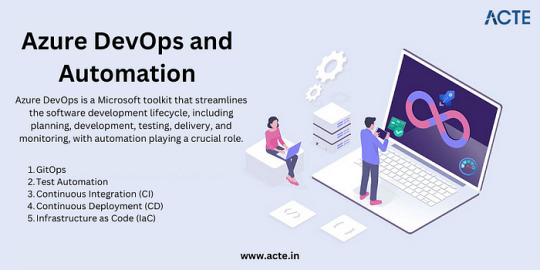
Monitoring and Management
Azure offers robust monitoring and management tools to help IT pros optimize resource usage, troubleshoot issues, and gain insights into their Azure deployments. Best practices for resource management can help reduce costs and improve performance.
Future Trends and Innovations
As the technology landscape continues to evolve, Azure remains at the forefront of innovation. Keep an eye on trends like edge computing and quantum computing, as Azure is likely to play a significant role in these domains.
Training and Certification
To excel in your IT career, consider pursuing Azure certifications. ACTE Institute offers a range of certifications, such as the Microsoft Azure course to validate your expertise in Azure technologies.

In conclusion, Azure’s evolution is a testament to Microsoft’s commitment to cloud innovation. As an IT professional, understanding Azure’s history, service offerings, global reach, security measures, and future trends is paramount. Azure’s versatility and comprehensive toolset make it a top choice for organizations worldwide. By staying informed and adapting to Azure’s evolving landscape, IT pros can remain at the forefront of cloud technology, delivering value to their organizations and clients in an ever-changing digital world. Embrace Azure’s evolution, and empower yourself for a successful future in the cloud.
#microsoft azure#tech#education#cloud services#azure devops#information technology#automation#innovation
2 notes
·
View notes
Text
Customized software development services
Customized software development services vary based on business requirements, features, complexity, and budget. Here’s an overview of key aspects:
1. Software Development Services
Custom Web Applications – Tailored web solutions for businesses.
Mobile App Development – Native (iOS/Android) & cross-platform apps.
Enterprise Software Solutions – ERP, CRM, HRMS, and other business apps.
SaaS Development – Cloud-based software with subscription models.
E-commerce Solutions – Online stores, marketplaces, and payment integration.
AI & ML Solutions – AI-driven applications for automation and analytics.
Blockchain Development – Smart contracts, cryptocurrency wallets, and decentralized apps.
IoT Software – Smart device integrations and automation systems.
2. Features & Customization
UI/UX Design – Custom user interfaces for seamless experience.
API Integrations – Payment gateways, third-party services, and CRM connections.
Cloud Deployment – AWS, Azure, or Google Cloud-based hosting.
Security & Compliance – Data encryption, GDPR, HIPAA compliance.
Scalability & Performance – Optimized for high traffic and future expansion.
Data Analytics & Reporting – Custom dashboards for insights and KPIs.
3. Estimated Cost & Pricing
Basic Software (MVP/Prototype) – $5,000 - $20,000
Medium Complexity (Web/Mobile Apps) – $20,000 - $100,000
Enterprise-Level Solutions – $100,000+
AI/Blockchain/IoT Solutions – Varies based on scope ($50,000+)
Pricing depends on features, tech stack, development hours, and team size.
4. Delivery Time & Development Phases
Requirement Analysis – 1-2 weeks
UI/UX Design – 2-4 weeks
Development (Coding) – 2-6 months (depends on complexity)
Testing & QA – 2-4 weeks
Deployment & Support – Ongoing maintenance & updates
5. Engagement Models
Fixed Cost – Best for well-defined projects.
Time & Material – Pay as you go, suitable for flexible requirements.
Dedicated Team – Full-time developers working on long-term projects.
Would you like a cost estimate for a specific project?
0 notes
Text
Mastering .NET : The Future of Software Development
Introduction
In today's fast-paced digital world, businesses and developers seek robust, scalable, and efficient solutions for building applications. Microsoft’s .NET framework has emerged as a powerful platform for developing secure, high-performance applications across various domains. Whether you are a beginner or an experienced developer, mastering .NET can open doors to endless career opportunities. This article explores the benefits of .NET, its applications, and how the best .NET training institute in Hyderabad can help you gain the skills necessary to excel in this field.
What is .NET?
Microsoft's .NET developer platform is free and open-source. It enables developers to build applications for web, mobile, desktop, gaming, and IoT devices. It supports multiple languages, including C#, F#, and Visual Basic, making it a versatile and widely used framework.
With the introduction of .NET Core, Microsoft has taken the framework to a new level, offering cross-platform compatibility and improved performance. Developers can now create applications that run seamlessly on Windows, macOS, and Linux, making it a go-to choice for enterprises and startups alike.
Why Choose .NET for Software Development?
1. Cross-Platform Development
One of the biggest advantages of .NET is its ability to support cross-platform development. Developers can create applications that work across multiple operating systems, reducing the need for separate codebases.
2. Scalability and Performance
The performance and scalability of .NET applications are well known. With features like Just-In-Time (JIT) compilation and garbage collection, .NET ensures efficient memory management and faster execution.
3. Security
Security is a top priority for any application, and .NET offers built-in security features like authentication, role-based access control, and data protection, making it an ideal choice for enterprise applications.
4. Large Community and Support
Being a Microsoft-backed framework, .NET has extensive documentation, active community support, and regular updates, ensuring developers have access to the latest tools and best practices.
Applications of .NET
.NET is widely used across various industries due to its flexibility and powerful features. Some common applications include:
Web Development: ASP.NET Core is widely used to build dynamic and scalable web applications.
Mobile Development: Xamarin, a part of .NET, allows developers to create native mobile applications for Android and iOS.
Desktop Applications: Windows Forms and WPF enable the development of feature-rich desktop applications.
Cloud-Based Applications: With Azure integration, .NET is a preferred choice for developing cloud-native applications.
Game Development: Unity, one of the most popular game engines, uses C# and .NET for developing high-performance games.
How to Learn .NET?
If you’re looking to enhance your programming skills and build a successful career in software development, choosing the best .NET training institute in Hyderabad is crucial. A structured training program will provide hands-on experience, industry-relevant curriculum, and expert guidance to help you master .NET development.
Conclusion
.NET is a powerful, versatile, and future-proof framework that is essential for building modern applications. Whether you are an aspiring developer or a professional looking to upgrade your skills, investing in a quality .NET training program is a smart move. If you’re searching for the best .NET training institute in Hyderabad, look no further than Monopoly IT Solution. With expert trainers, hands-on learning, and career support, Monopoly IT Solution ensures you stay ahead in the competitive IT industry. Start your journey in .NET today and unlock endless career possibilities.
0 notes
Text
Custom Mobile App Development Services in Surat | Transcodezy
At Transcodezy IT Solutions, we specialize in developing mobile applications that not only meet but exceed your business goals. Our team of expert developers and designers work collaboratively to deliver mobile apps that are visually appealing, highly functional, and provide an exceptional user experience.
Mobile App Development Services
iOS App Development: We create high-quality iOS applications tailored to your business needs, ensuring seamless performance on iPhones and iPads.
Android App Development: Our team develops dynamic, user-friendly Android applications that cater to a wide range of business requirements.
Cross-Platform App Development: Utilizing frameworks like React Native and Flutter, we build applications that run smoothly across multiple platforms, reducing development time and costs.
Enterprise Mobile Solutions: We offer scalable enterprise mobile solutions that enhance business processes and improve operational efficiency.
Mobile App UI/UX Design: Our designers focus on creating intuitive and engaging user interfaces to ensure a seamless user experience.
Mobile App Testing and QA: We conduct thorough testing and quality assurance to deliver robust and reliable mobile applications.
Our Expertise in Mobile App Design & Development
React Native Development: We create native apps for your brand or startup using React Native, ensuring high performance and a native feel.
iPad App Development: From games and utilities to social media, we develop all types of iPad applications.
Swift App Development: Build iOS applications for your brand efficiently with Swift Apps Development.
Flutter App Development: Get beautiful native apps quickly with our Flutter Apps Team.
IoT App Development: Our IoT app team designs and builds high-quality machine-to-machine apps.
Technology Expertise
Our team is proficient in a wide range of integration tools and technologies, ensuring we can handle any project.
iOS: Xcode, Swift, Objective-C
Android: Android Studio, Kotlin, Java
Cross-Platform: React Native, Flutter
Backend: PHP, Laravel, Node.js
Databases: MySQL, PostgreSQL, MongoDB, Firebase
Cloud Services: AWS, Google Cloud, Azure
Partner with Transcodezy IT Solutions to transform your mobile app ideas into reality. Our comprehensive mobile app development services are designed to drive your business success.
0 notes
Text
Cloud Services | Techally Labs

In the modern digital landscape, Cloud Services have become an essential part of business operations, enabling organizations to store, manage, and process data efficiently. Cloud services provide businesses with the flexibility to scale their infrastructure, enhance security, and reduce operational costs. Whether it's cloud storage, computing, networking, or security, cloud services offer seamless accessibility from anywhere, ensuring business continuity and disaster recovery. Companies leveraging cloud solutions can improve collaboration, enhance productivity, and integrate advanced technologies such as AI, machine learning, and IoT. With public, private, and hybrid cloud options, businesses can choose the best solution that fits their needs and operational goals.
At Techally Labs, we provide top-tier cloud services designed to help businesses streamline operations and drive digital transformation. Our expertise includes cloud migration, infrastructure management, security solutions, and cloud-native application development. We work with industry-leading platforms like AWS, Google Cloud, and Microsoft Azure to deliver scalable and cost-effective solutions. Whether you need a secure cloud storage solution, enterprise cloud computing, or managed cloud services, Techally Labs ensures seamless integration with your business processes. Our team of cloud experts focuses on reliability, performance, and security to help businesses harness the power of the cloud. Partner with Techally Labs to optimize your cloud strategy and achieve greater efficiency, scalability, and business success.
0 notes
Text
Immersive Learning: The Power of VR in Training - Atcuality
At Atcuality, we believe that learning should be as dynamic as the challenges you face. That’s why our VR-based training solutions are transforming how individuals and teams acquire new skills. With VR, we simulate real-life environments, enabling learners to practice, adapt, and succeed without the consequences of real-world mistakes. Our solutions are cost-effective, scalable, and highly engaging, making them ideal for industries like healthcare, construction, and corporate training. Experience the unmatched advantages of immersive technology and give your team the tools they need to excel. Step into the future of education with Atcuality.

#seo services#seo marketing#artificial intelligence#seo company#seo agency#ai powered application#digital marketing#azure cloud services#iot applications#amazon web services#augmented human c4 621#augmented reality agency#augmented and virtual reality market#augmented intelligence#augmented reality#ai applications#ai app development#ai generated#technology#virtual reality#digital services#web development#web design#web developers#web developing company#website development#cash collection application#blockchain#metaverse#wordpress
3 notes
·
View notes
Text
BCA Course 2025: A Comprehensive Guide to Your Future in IT

The Bachelor of Computer Applications (BCA) course has gained immense popularity among students aspiring to build a successful career in the field of Information Technology (IT). As technology continues to evolve, the demand for skilled IT professionals is on the rise. The BCA Course 2025 is designed to equip students with the knowledge and skills required to excel in software development, database management, networking, cybersecurity, and other specialized domains. This blog provides a detailed insight into the BCA course in 2025, covering eligibility criteria, syllabus, career prospects, and the latest trends in the IT industry.
What is BCA?
BCA, or Bachelor of Computer Applications, is a three-year undergraduate degree program that focuses on computer science and application development. It serves as an excellent alternative to traditional engineering degrees like B.Tech in Computer Science. The curriculum is structured to provide students with both theoretical and practical knowledge of computing principles, programming languages, and emerging technologies.
Eligibility Criteria for BCA Course 2025
To enroll in a BCA course in 2025, candidates must meet the following eligibility requirements:
Educational Qualification: Candidates should have completed their 10+2 education from a recognized board with Mathematics or Computer Science as one of the subjects.
Minimum Percentage: Most universities require a minimum aggregate of 50-60% in the 12th standard.
Entrance Exams: Some universities conduct entrance exams, while others offer direct admissions based on merit.
Age Limit: The age limit varies from institution to institution, but generally, candidates should be between 17-25 years old.
BCA Course Duration and Syllabus
The BCA course spans three years, divided into six semesters. The curriculum includes a blend of core subjects, electives, and practical training. The following is a general overview of the BCA syllabus for 2025:
Semester-wise Breakdown
Semester 1
Introduction to Computers
Programming in C
Digital Electronics
Mathematics for Computing
Communication Skills
Semester 2
Object-Oriented Programming in C++
Data Structures
Database Management Systems (DBMS)
Operating Systems
Web Technologies (HTML, CSS, JavaScript)
Semester 3
Java Programming
Computer Networks
Software Engineering
Computer Architecture
Management Information Systems
Semester 4
Python Programming
Mobile Application Development
Artificial Intelligence & Machine Learning Basics
Cloud Computing
Cybersecurity & Ethical Hacking
Semester 5
Data Science & Big Data Analytics
Internet of Things (IoT)
DevOps & Automation
Blockchain Technology
Minor Project
Semester 6
Advanced Web Development
Digital Marketing & SEO
Research Methodology
Major Project
Industrial Training / Internship
Skills Required for BCA Students
To succeed in the BCA course 2025, students should develop the following skills:
Proficiency in programming languages (C, C++, Java, Python, JavaScript, etc.)
Problem-solving and analytical thinking
Understanding of database management and networking
Web development and UI/UX design skills
Knowledge of cybersecurity measures and ethical hacking
Strong communication and teamwork abilities
Career Opportunities After BCA in 2025
Graduating with a BCA degree in 2025 opens doors to various career opportunities in the IT industry. Some of the most sought-after job roles include:
Software Developer: Designing and developing software applications.
Web Developer: Creating and managing websites using front-end and back-end technologies.
Data Analyst: Analyzing large datasets to extract meaningful insights.
Network Administrator: Managing and securing computer networks.
Cybersecurity Analyst: Protecting organizations from cyber threats.
Cloud Computing Engineer: Working on cloud-based platforms like AWS, Azure, and Google Cloud.
AI & Machine Learning Engineer: Developing intelligent systems using AI algorithms.
Digital Marketing Specialist: Managing online marketing strategies and SEO optimization.
IT Consultant: Advising businesses on the best IT solutions.
Higher Education Options After BCA
After completing BCA, students can opt for higher education to enhance their career prospects. Some popular options include:
Master of Computer Applications (MCA): A two-year postgraduate degree focusing on advanced computing concepts.
MBA in IT Management: Combining business and IT knowledge for managerial roles.
M.Sc. in Data Science or AI: Specializing in data analytics and artificial intelligence.
Postgraduate Diplomas in Cybersecurity, Cloud Computing, or Blockchain Technology
Trends and Future Scope of BCA Graduates
The future of BCA graduates in 2025 looks promising, thanks to rapid advancements in technology. Some emerging trends shaping the IT industry include:
Artificial Intelligence & Machine Learning: AI-powered solutions are transforming industries worldwide.
Cybersecurity & Ethical Hacking: As cyber threats increase, the demand for security experts is at an all-time high.
Cloud Computing & DevOps: Organizations are moving to cloud-based infrastructures, creating job opportunities in this domain.
Blockchain Technology: Used in finance, healthcare, and supply chain management for secure transactions.
Internet of Things (IoT): Connecting smart devices to enhance automation and efficiency.
Conclusion
The BCA Course 2025 is an excellent choice for students interested in a dynamic and rewarding career in IT. With a well-structured curriculum, numerous career opportunities, and the scope for further education, BCA remains a preferred option for aspiring tech professionals. By staying updated with industry trends and acquiring in-demand skills, students can build a successful career in software development, cybersecurity, AI, cloud computing, and beyond.
0 notes
Text
Goognu- Supercharge Your Business with Azure Consulting Services

Cloud technology is the backbone of modern businesses, enabling scalability, efficiency, and innovation. Microsoft Azure offers incredible potential, but to truly harness its power, you need the right expertise. That’s where Goognu’s Azure Consulting Services step in. We simplify your cloud journey, optimize costs, and enhance security—so you can focus on growing your business with confidence.
Why Choose Goognu for Your Azure Needs?
Navigating Azure’s vast ecosystem can be complex, but with Goognu by your side, you get a tailored approach that fits your business like a glove. Here’s what makes us different:
Certified Azure Professionals – Our experts bring deep technical knowledge to your cloud strategy.
Customized Cloud Solutions – We craft solutions designed specifically for your business objectives.
Seamless Migration & Deployment – Hassle-free transitions with minimal downtime.
Robust Security & Compliance – Protect your cloud environment with enterprise-grade security measures.
Cost-Effective Optimization – Maximize your cloud investment without overspending.
24/7 Support & Monitoring – Round-the-clock assistance to keep your operations running smoothly.
Our Comprehensive Azure Consulting Services
1. Azure Strategy & Planning
Success starts with a solid plan. Our team evaluates your current infrastructure and develops a roadmap that includes:
Scalable and secure architecture design.
A seamless migration and modernization strategy.
Cost-saving recommendations for an optimized cloud setup.
2. Effortless Azure Migration & Deployment
We take the stress out of cloud migration with:
Zero-downtime transition strategies.
Application modernization for optimal performance.
Hybrid and multi-cloud solutions for flexibility.
3. Performance-Driven Azure Infrastructure & DevOps
Achieve peak efficiency with:
Automated cloud operations for seamless management.
DevOps integration for faster software development.
Disaster recovery planning to ensure business continuity.
4. Security & Compliance You Can Trust
Stay protected with our enterprise-grade security solutions:
Advanced security frameworks to prevent cyber threats.
Proactive risk assessment and compliance support.
Regulatory compliance for GDPR, HIPAA, ISO, and more.
5. Azure Cost Optimization & Management
Avoid unnecessary expenses with:
Smart resource allocation to prevent overspending.
Reserved instance implementation for cost savings.
AI-powered analytics for intelligent budgeting.
6. AI, Data, and Business Intelligence Solutions
Leverage cutting-edge technology to gain insights:
AI-powered automation for smarter workflows.
Advanced analytics for data-driven decision-making.
Scalable cloud storage for seamless data management.
Industries We Empower
Our Azure Cloud Consulting Services cater to businesses across various industries, including:
Healthcare – Secure, compliant cloud infrastructure.
Finance – Data security and risk management.
E-commerce & Retail – AI-driven customer insights.
Manufacturing – IoT-powered automation and analytics.
Education – Scalable cloud platforms for digital learning.
Why Businesses Trust Goognu
Partnering with Goognu means unlocking:
Operational Efficiency – Streamlined workflows with automation.
Enhanced Security – Robust compliance and threat protection.
Scalability & Flexibility – A future-ready cloud environment.
Cost Savings – Optimized resources for maximum ROI.
Take the Next Step in Your Cloud Journey
Your business deserves a cloud strategy that drives success. Whether you're planning a migration, enhancing security, or optimizing costs, Goognu’s Azure Consulting Services will help you achieve your goals.
Ready to elevate your cloud experience? Contact Goognu today!
0 notes
Text
**Artificial Intelligence and Machine Learning (AI/ML)**

**Artificial Intelligence and Machine Learning (AI/ML)**
By 2025, Artificial Intelligence (AI) and Machine Learning (ML) will dominate the tech landscape, revolutionizing industries and reshaping the future of work. AI/ML skills will be in high demand as businesses increasingly rely on data-driven decision-making, automation, and predictive analytics. From healthcare and finance to retail and manufacturing, AI-powered solutions optimize operations, enhance customer experiences, and drive innovation.
Proficiency in AI/ML involves understanding algorithms, neural networks, natural language processing (NLP), and computer vision. Familiarity with frameworks like TensorFlow, PyTorch, and Scikit-learn is essential, as is expertise in programming languages such as Python and R. Additionally, data preprocessing, model training, and deployment using cloud platforms like AWS, Azure, or Google Cloud will be critical.
The rise of generative AI tools, such as ChatGPT and DALL-E, highlights the growing importance of creative AI applications. Professionals skilled in developing and fine-tuning these models will be highly sought after. Ethical AI practices, including bias mitigation and transparency, will also play a key role as organizations prioritize responsible AI deployment.
As AI continues to evolve, interdisciplinary skills combining AI with domains like cybersecurity, IoT, and robotics will become invaluable. By 2025, AI/ML expertise will be a top tech skill and a cornerstone of innovation, making it a must-have for anyone looking to thrive in the digital economy.
0 notes
Text
IoT Software Development: How IoTric is Transforming Businesses with Smart Solutions
The Internet of Things (IoT) is revolutionizing the way corporations function, supplying clever answers that enhance performance, enhance safety, and provide real-time insights. One of the leading gamers in IoT software improvement is IoTric, a company committed to growing cutting-edge IoT solutions for various industries. Whether it is clever home automation, industrial IoT, or healthcare answers, IoTric is at the forefront of virtual transformation.
What is IoT Software Development? IoT software development entails growing packages, systems, and systems that permit gadgets to attach, speak, and perform seamlessly. These software answers are designed to manage, examine, and interpret records collected from related gadgets, assisting corporations make knowledgeable choices and optimize operations.
IoTric: A Leader in IoT Software Development IoTric specializes in developing strong IoT answers tailored to distinctive industry needs. The corporation makes a speciality of handing over comfy, scalable, and excessive-performance IoT applications that empower organizations to thrive in a connected global. With knowledge in cloud computing, AI-driven analytics, and real-time statistics processing, IoTric presents state-of-the-art answers that assist groups stay ahead of the opposition.
Key Services Offered by way of IoTric in IoT Software Development 1. Custom IoT Application Development IoTric develops customized IoT programs that cater to the specific requirements of businesses. Whether it’s a clever home automation app, a healthcare monitoring machine, or an industrial IoT platform, IoTric guarantees seamless integration and functionality.
2. IoT Platform Development IoTric builds scalable and secure IoT systems that connect gadgets, store statistics, and facilitate real-time tracking. These systems permit organizations to manage their IoT ecosystems successfully.
3. Edge Computing Solutions With edge computing, IoTric ensures that records processing occurs closer to the supply, decreasing latency and improving performance. This is in particular useful for industries requiring real-time data analysis, together with manufacturing and healthcare.
4. IoT Cloud Integration IoTric integrates IoT answers with cloud systems like AWS, Azure, and Google Cloud, making sure relaxed data storage, real-time analytics, and smooth scalability.
5. IoT Security Solutions Security is a top priority in IoT software development. IoTric offers give up-to-give up encryption, comfortable device authentication, and compliance with global security standards to shield sensitive records.
6. AI and Machine Learning in IoT IoTric integrates AI and gadget learning with IoT programs, permitting predictive analytics, automated decision-making, and smart optimization of connected devices.
Industries Benefiting from IoTric’s IoT Solutions 1. Smart Homes and Cities IoTric develops clever domestic automation systems that permit users to manipulate lights, security, and appliances remotely. In smart cities, IoTric’s solutions assist in visitors management, strength conservation, and public protection.
2. Healthcare With IoTric’s IoT-enabled healthcare solutions, hospitals and clinics can display patient health remotely, track scientific device, and optimize medical institution operations.
3. Manufacturing and Industrial IoT IoTric offers industrial IoT answers that beautify performance, predict gadget screw ups, and optimize deliver chain operations.
4. Retail and E-trade IoTric’s retail IoT solutions assist corporations song stock, screen patron conduct, and beautify personalised purchasing experiences.
5. Automotive and Transportation IoTric develops smart transportation solutions that optimize fleet control, decorate automobile safety, and improve fuel performance.
Why Choose IoTric for IoT Software Development? Expertise in IoT Technology: IoTric’s group accommodates skilled builders who recognize the complexities of IoT software improvement. Scalability and Flexibility: IoTric’s solutions are designed to scale with business boom and adapt to converting requirements. Security-First Approach: IoTric prioritizes protection, making sure that all IoT packages observe international cybersecurity standards. Seamless Integration: IoTric guarantees clean integration with existing IT infrastructure and 1/3-birthday celebration packages.
Final Thoughts IoT software program development is shaping the destiny of virtual transformation, and IoTric is main the manner with its innovative answers. Whether you’re seeking to automate your own home, decorate commercial operations, or optimize healthcare offerings, IoTric’s contemporary IoT packages can help you acquire your goals.
If you’re ready to include IoT and take your business to the next level, IoTric is the accomplice you may agree with for reliable, at ease, and scalable IoT solutions.
0 notes